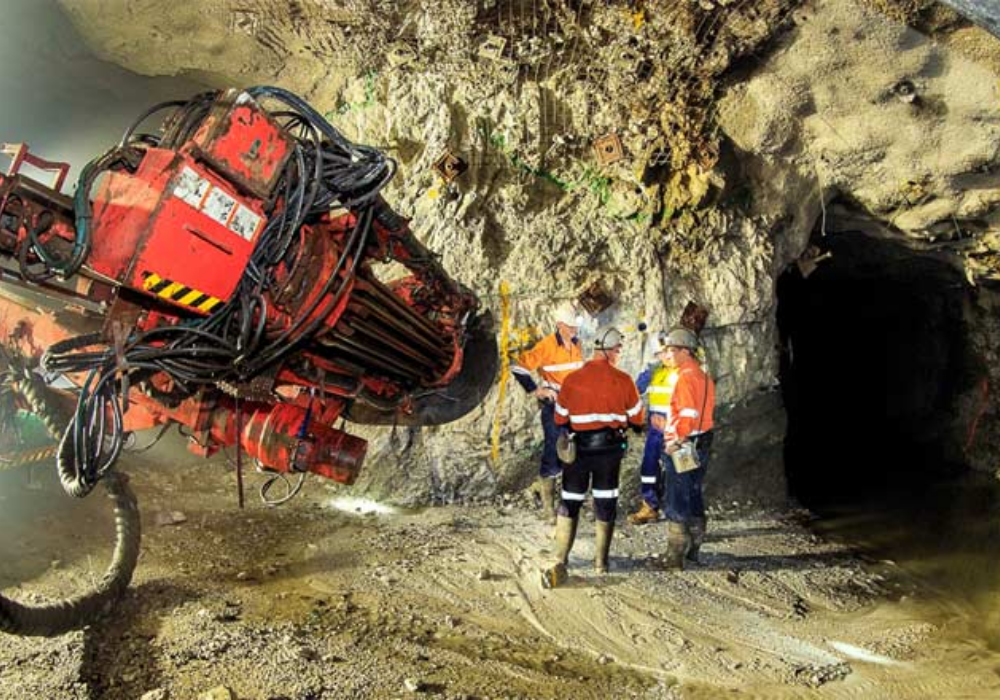
The rise of the social investor, plotting a path towards decarbonisation and modernising core technologies are three of the leading trends set to impact the mining sector in 2020.
Multinational professional services giant Deloitte said companies are seeking ways to create “value beyond compliance” by delivering a positive socio-economic impact while “simultaneously fostering operational efficiency and business competitiveness”.
Its annual mining report — Tracking the trends 2020 — provides insights, strategies and ideas from the New York-based firm on how miners can steal a march on their competitors.
Dr Leeora Black, principal in Deloitte Australia’s sustainability services team and an energy expert, said investors are making it clear they will not advance funds unless companies demonstrate a “meaningful and measurable commitment to the principles so much of society holds dear”.
“This causes mining companies to consider not only threats to public trust but also potential threats to investor trust,” she added.
Here, NS Energy analyses eight key trends Deloitte believes will have a significant impact on mining in 2020.
Eight key trends set to impact mining in 2020
The social investor
Deloitte says the drive towards socially conscious profit is no longer limited to environmental activists, with civil society and investors demanding greater transparency about the true social, economic and environmental impact of sectors such as mining.
It believes that to retain investor trust, miners should “embrace a commitment to value beyond compliance”, which it adds is the fundamental synergy between economic performance and social progress.
This would leverage shared value principles, innovation, analytics, digitisation, and strategic and evidence-based solutions to deliver socio-economic impact — allowing the principles to help address rising investor expectations as well.
Getting partnerships and joint ventures right
The report highlights that with junior miners constrained by a lack of capital and market capitalisations not reflecting full corporate value, many industry players are consolidating to gain scale.
It says joint ventures seem a natural solution, but they often fail due to unclear decision-making processes, ineffective governance, and poor transparency and alignment.

Some mining companies are considering other ways to distribute the risks associated with major capital projects, according to Deloitte.
It says an emerging model is to allocate project assets and liabilities across a full ecosystem of partners — from mining companies, original equipment manufacturers (OEMs), and service providers to local communities and governments.
Seize opportunity amid uncertainty
Economic trends are currently forecasting a potential global downturn, impacting on commodity prices.
To help companies avoid being blindsided, the report pinpoints several ways miners should prepare.
It recommends preparing for a range of plausible scenarios rather than one generic downturn; stress-test company strategies; build strong leadership teams; continue to innovate; take the time to redesign workflows; retain key talent; re-examine relationships with other companies; acquire fresh resources.
The analyst believes a downturn can be the best time to make acquisitions and hire talent.
Dynamically managing risk
Deloitte says mining companies can no longer rely on their risk registers to identify critical risks as global volatility rises.
It adds that issues such as insufficient risk sensing, a ‘tick the box’ mentality, and complex operating models are forcing them to predict the impact of emerging events and prioritise key risks.
The analysis notes five elements associated with strategic risk management — integrating risk, control and assurance; going back to basics by redefining the company’s risk appetite; exploring alternative futures and planning for worst-case scenarios; leveraging better data; learning from past mistakes and empowering employees to report risks.
The path to decarbonisation
Increased stakeholder pressure and the strengthening business case for decarbonisation has seen most mining companies taking steps to reduce their greenhouse gas emissions, according to the report.
It says market factors are also strengthening the business case for decarbonisation, with the costs of lithium-ion battery storage and solar power falling, and the consumption costs associated with renewable energy negligible.
Deloitte believes miners should assess how to integrate a carbon-neutral approach into their business processes.
On the road towards intelligent mining
Mining companies have started their digital journeys in recent years, with some firms making better progress than others.
The report says a review of what has been learned could help companies optimise their digital evolution and unlock sustainable value.
But it suggests many companies may have underestimated the amount of effort required to clean up their data and upgrade technology infrastructures.

Deloitte believes that with a move towards integrated operations centres, used to help guide decision-making across the supply chain, miners should consider the right staffing and whether they should build capacity in-house or outsource.
It states that to unlock the value of intelligent mining, leading companies are moving towards a more centralised governance approach.
Modernising core technologies
The analysis says mining companies need to modernise many of their legacy systems and migrate to a digital core.
This would raise a range of considerations around moving to the cloud, adopting sound cyber security strategies, managing data and choosing the best approach for revitalising their core systems, according to the report.
It believes miners need to update their enterprise resource planning systems and make choices on whether to host their data in-house or through the cloud.
Deloitte says that as operational processes are digitised, a new challenge is to ensure that facilities such as mine sites, mineral processing plants, and remote operations centres are not vulnerable to cyber attacks.
The intersection of talent and community
With digitisation becoming increasingly popular within mining, the report says a host of benefits have opened up in the sector.
These opportunities are cost reduction, improved production, enhanced safety performance to plant optimisation, greater inventory control, and the ability to predict and mitigate crises.
Deloitte believes that to capitalise on the digital revolution, most mining companies need to drive radical change both internally and within the communities where they operate.
It adds that underestimating internal organisational barriers, bureaucracy and the impacts on local communities could hinder companies’ ability to realise the full benefit of their investments.






